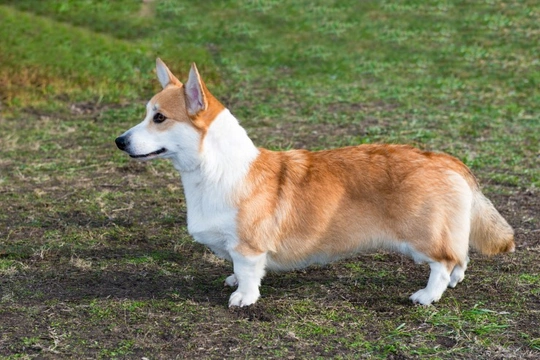
Urolithiasis in the Cardigan Welsh corgi
The Cardigan Welsh corgi is one of the two separate corgi dog breeds, which hails from Wales and that is still very popular in their home country, as well as having a dedicated following of owners and breed enthusiasts all across the UK.
Cardigan Welsh corgis are small dogs that naturally exhibit a form of canine achondroplasia or dwarfism, which is responsible for the breed’s signature appearance of a long, rounded body with disproportionately short legs. It is this unique size and build that first led to the Welsh corgi becoming popular and in demand as a working herding dog, as dogs of the breed are excellent cattle herding dogs that are low enough to the ground to avoid getting kicked by a stray hoof!
Today, the Cardigan Welsh corgi is almost exclusively kept as a pet rather than a working dog, and they make for excellent companions for people from all walks of life.
If you have your heart set on owning a Cardigan Welsh corgi, it is important to do lots of research into the breed and its core traits and to meet as many dogs and owners of dogs of the breed as possible as part of this. Learning about the corgi temperament and main behaviours is vital, but it is also important to find out more about the breed’s general health, longevity, and any particular challenges before committing to a purchase.
The Cardigan Welsh corgi tends to be a robust, healthy and long-lived dog breed with an average lifespan of around 12-15 years. However, there are a small number of hereditary health conditions that can affect dogs and that are more common within the Cardigan Welsh corgi breed than most others, and one of these is called urolithiasis.
In this article we will look at urolithiasis in the Cardigan Welsh corgi in more detail, and explain what it is, what its symptoms are, and what can be done about it. Read on to learn more.
What is urolithiasis?
Urolithiasis is the name given to a health condition caused by the development of uroliths or urinary stones, which most commonly form in the dog’s bladder but that may also develop in the kidneys or the tubes that connect the bladder and the kidneys together.
Uroliths form from urate crystals, that cluster together to form hard stones that can cause pain, inflammation and irritation, and that may even partially or totally block the area in question. This can mean that urination is blocked in whole or in part, which means that the dog cannot pass water, and which can prove fatal if left untreated.
Urolithiasis can be problematic in that it tends to recur in dogs that have suffered from the condition previously, and because it can be challenging to break down and eradicate the stones it causes.
Why are Cardigan Welsh corgis susceptible to urolithiasis?
Urolithiasis tends to be more common in small dog breeds than larger ones, and it also appears more frequently in certain breeds of dog than others. Why the Cardigan Welsh corgi seems to be more prone to developing urolithiasis than most other breeds isn’t known for sure, but there is almost certainly a hereditary element to the condition as evidenced by the frequency at which the condition appears within the breed as a whole.
What are the symptoms of urolithiasis in the Cardigan Welsh corgi?
The symptoms of urolithiasis in the Cardigan Welsh corgi can be hard to pinpoint as you can only gauge what is going on by the external symptoms your dog presents, and these symptoms can be very variable from dog to dog, and case to case.
Often, a stone will have become quite large or already have begun to cause problems by the time you spot something amiss, and so it is important to be vigilant to the potential symptoms of urolithiasis in your Cardigan Welsh corgi.
Some of the potential symptoms of urolithiasis in dogs include:
- Bloody urine.
- The need to urinate frequently.
- Loss of appetite.
- Lethargy and loss of interest in exercise.
- Pain.
- Sickness and/or diarrhoea.
Symptoms such as the above can help your vet to narrow down the root cause and identify where to look and investigate, in order to make a formal diagnosis.
How is urolithiasis treated?
The approach that your vet chooses to treat urolithiasis in your Welsh corgi will depend on the makeup of the stones, their size, and where they are located. In acute and serious presentations of the condition that are causing a full or almost full blockage, surgery may be required, although this is not always the case if the condition is caught earlier on.
Your vet may alternatively suggest a special diet that is low in the minerals and trace elements that can contribute to the formation of uroliths, and also medications to soften and help the stones to dissolve and break down into smaller particles on their own.
Your dog may need to be monitored and fed a special diet in the long term too if they are prone to urolithiasis, to reduce the chances of future recurrences.



